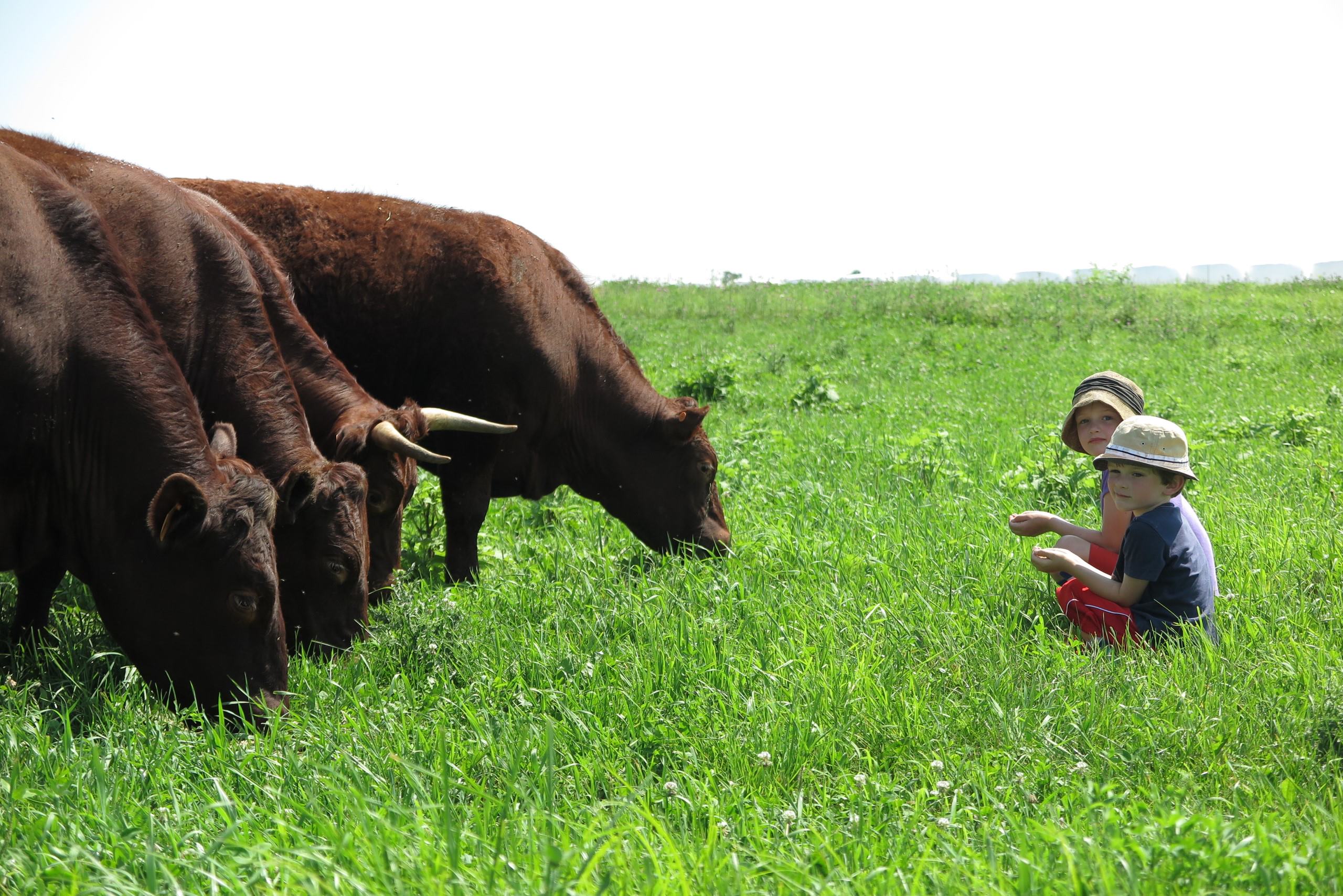
Truly Pasture Raised Beef
Getting it right took time. Frankly it was an art.
We are exceptionally proud of the beef we offer at TC Farm. There are a lot of reasons that go into why our beef is better.
OUR BEEF STANDARDS
TC Farm Is Better
Tender Dry-Aged Beef
In the store, beef is almost always wet-aged. This makes the meat watered down with about 10% extra water content (not such a great value).
We age ours 21-28 days and have found a huge difference in quality with that extra effort. Our dry-aged beef means a fuller flavor and better value.
Rotationally Grazed
Most conventionally raised beef (and even lots of grass fed beef) is raised on feedlots. Conventional farming practices degrade the soil and pollute Minnesota rivers and streams.
By moving our herd to fresh pasture on a regular basis, we are taking care of the land we farm. In fact, our farming actually builds topsoil, sequestering carbon and protecting local streams along the way.
Actually Grass Fed
Grass fed means our beef is fed hay, pasture, minerals and water. That's it. Exactly what you'd expect.
You'd be surprised to learn what the industry feeds and still counts as "grass fed" (hint: it isn't grass). Cows may be fed industry waste, sawdust, candy -- and they still count as "grass fed".
Most "grass fed" beef in the grocery is actually from feedlot dairy cows or cull cows that are at the end of their productive lives. Since it is not typically raised on actual pasture with fresh grass, the beef doesn't taste as good and is not as healthy.
Slower Growth = Flavor
Others engineer things to raise beef as fast and cheap as possible, usually through cutting corners.
We rely on slower growth and healthier food. Using only slow-growth genetics, combined with the artful care we provide, really makes a difference. Simply put: Our steers take longer to raise.
All the extra time we invest means our beef costs a just little more. We think you'll agree it's worth it.
No Drugs
Zero. Ziltch. Nada.
We never use any type of growth drug.
Raised on lush pasture, our cows are healthy and never would require routine antibiotics like most others which are raised in unsanitary conditions.
I was amazed to learn that 70-80% of beef now uses the growth drug Ractopamine to speed up growth. This drug is illegal in 160 other countries. What's worse, that beef is still marketed here as "hormone free" and their use of the drug isn't disclosed. The grocery staff probably don't even know.
100% Grass Fed - Bulk Orders
Many of our products are offered in bulk quantites which can provide a discount.
Contact us for more infomation.
Barley Finished Beef vs. 100 % Grass Fed
Our barley finished beef is raised to the same standards as our grass fed beef mentioned above, only the steers are finished with a small amount of barley (a very natural food when offered in moderate quantity).

